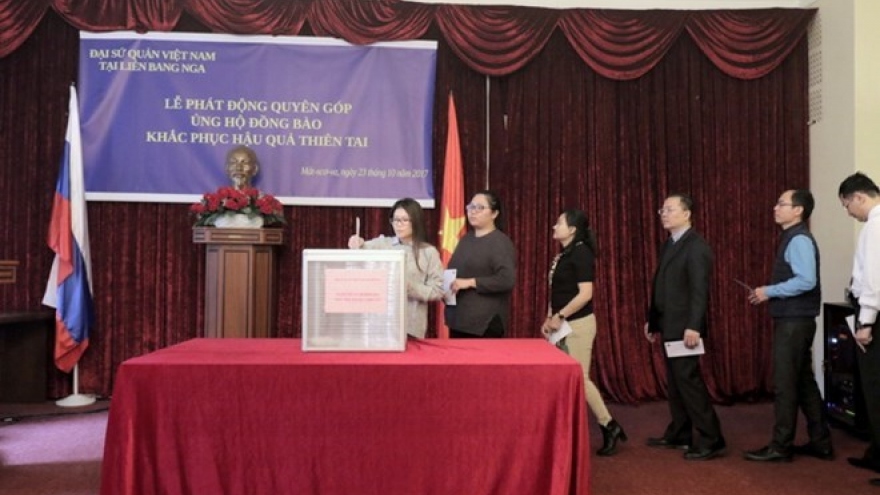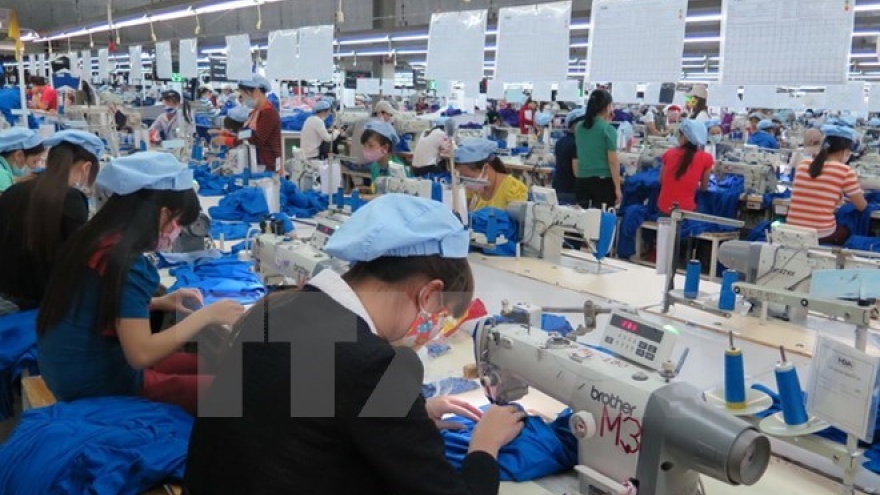Vietnam, Russia maintain mutual trust towards stronger development cooperation
VOV.VN - Vietnam and Russia (then the Soviet Union) established diplomatic ties in 1950 and upgraded their ties to the strategic partnership in 2001 and to the comprehensive strategic partnership in July 2012.
 |
To mark the centennial of Russia’s October Revolution and the 94th anniversary of the day when President Ho Chi Minh first set foot in Russia. A correspondent for Voice of Vietnam in Russia interviewed Vietnamese Ambassador Nguyen Thanh Son on the current state of the relationship and the prospects of bilateral economic, trade and investment ties.
VOV: What’s your assessment of the time-honoured ties of friendship and cooperation between Vietnam and the Soviet Union in the past and Russia at present?
Ambassador Son: The relationship between Vietnam and the former Soviet Union had firm foundations for close ties as the two sides shared the same ideological system, both were socialist states and both pursued the struggles for national defence. National cultural development has been strongly promoted on the back of numerous historical and cultural similarities.
Although Russia has followed a multiparty democracy, the sentiment of the Russian people for Vietnam remains the same. Despite receiving no military or economic aid from Russia as in the past, Vietnam now can stand firm on its own two feet towards deeper international integration with its rising status in the international arena.
The two countries joined international treaties that the Soviet Union had signed in the past and were subsequently inherited by Russia, thus bringing many core interests to both and the ties in all fields between Russia or the Soviet Union with our country remain intact.
VOV: Based on the long-standing traditional friendship, what progress have the two countries made to build a strategic partnership over the past few years?
Ambassador Son: With its high attainments of basic education in science and technology, Russia has helped train thousands of Vietnamese technicians in every field, many of whom have become senior leaders who have done their great jobs in the country’s political, economic and cultural aspects.
In the near future, the two countries should augment cooperation in mutual education and training under which, Vietnam needs to take full advantage of the scholarships granted by Russia. Over recent years, the number of Russian scholarships awarded to Vietnamese citizens has been higher than it did during the period of Soviet Union.
It is essential to step up healthcare cooperation as Russia has achieved the good results of a vast research project concerning the treatment of cancer.
If we boost comprehensive cooperation with Russia, it will be mutually beneficial.
VOV: Vietnam signed a free trade agreement with the Eurasian Economic Union (EAEU), including Russia. What should both nations do to expand economic and trade cooperation in the future?
Ambassador Son: The trade deal has been offering practical benefits to Vietnam. Although initial implementation only began a year ago, its benefits and efficiency are clear to see.
However, to further boost bilateral trade ties, obstacles in terms of payment and transport methods must be overcome. For example, Vietnamese goods exported to Russia or vice versa used to be transported through European countries and then via Vladivostok, a new transport route should be devised that bypasses such unnecessary distances and shortens transportation time. One suggestion is an international railway.
Furthermore, if limitations on direct cooperation mechanisms between businesses are removed, high quality domestic products will secure a firm foothold on these markets.
Finally, management agencies at home must play an important role in providing necessary information for businesses, helping them have easier access to the EAEU market.
VOV: Thank you very much.




